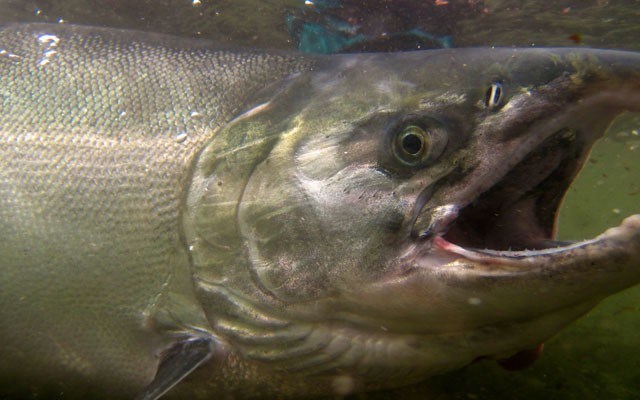Members of the Pemberton Wildlife Association (PWA) are sounding the alarm over troublingly low returns of coho salmon to the Upper Lillooet River this fall.
"The Upper Lillooet itself was completely devoid of coho," noted the group's president, Allen McEwan. "The Lil'wat (Nation) fisheries people did manage to see about 40 fish on the Birkenhead River, when normally there would be closer to a thousand. But on the Upper Lillooet the returns were absolutely nil."
In an April 28 letter addressed to Fisheries Minister Hunter Tootoo, McEwan called for more clarity from Fisheries and Oceans Canada (DFO) on the potential causes behind the "disastrous decline" of coho not only within the region, but throughout the Fraser River Watershed.
"I don't think it's a local issue," said McEwan. "While coho habitat has taken a beating due to industrial and agricultural development, these streams in the Upper Lillooet are still pretty much untouched and they should still be capable of producing coho salmon."
A spokesperson for the DFO could not be reached by deadline, but local fisheries consultant and PWA member Veronica Woodruff said fisheries staffers told her the weak returns could be chalked up to low ocean survival rates.
"You can say, 'Oh, it's poor ocean survival,' but that's such a huge statement," said Woodruff. "At the PWA, we're going to rely on the experts at Fisheries and Oceans to do the research and tell us why ocean survival is poor."
Coho spawn have been recorded in over half of the 1,500 streams in B.C. and Yukon for which records are available, and the fish is an invaluable source of nutrients to the ecosystem.
"All of these other ecosystem parts, like eagles, bears, trees, all of these things really rely on that nutrient source," explained Woodruff. "You'll see a real cascading effect down the line ecologically without (coho) salmon."
In McEwan's letter, the PWA also questioned the elimination of a senior biologist technician position in the DFO's Lower Fraser Area after the recent retirement of long-time employee Sam Gidora.
"Clubs like ours are an enormous pool of free labour, ideas and funding, so we've done numerous coho salmon enhancement projects up here in the Pemberton area in the past," McEwan said. "But we need someone like that position to supervise and help us with the engineering, etc. You can't just expect the volunteers of a club to carry on without some input from DFO."
Major funding cuts to the DFO during former Prime Minister Stephen Harper's term had industry observers up in arms over what they called a lack of scientific evidence backing many of the ministry's decisions. Conservationists were also critical of Harper's continual watering down of habitat protection legislation as well as industry's growing influence over fisheries management.
But with Prime Minister Justin Trudeau in office, the PWA is optimistic Canada's new leader will keep his vows to enhance marine habitat protection and follow through on the recommendations out of 2012's $37-million Cohen report on salmon.
"We're super hopeful," Woodruff said. "I know there's a lot of naysayers out there... but wheels turn slow in government and I'm willing to be patient."




